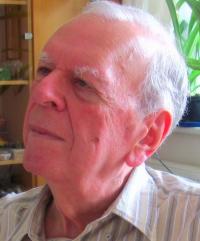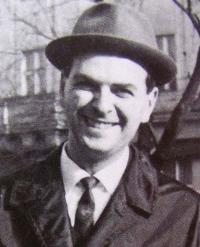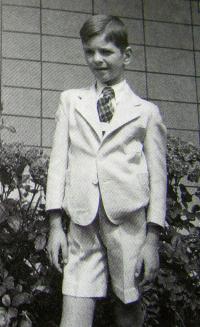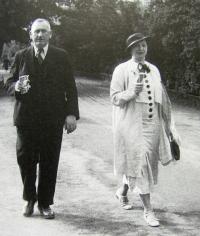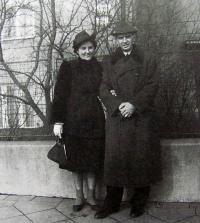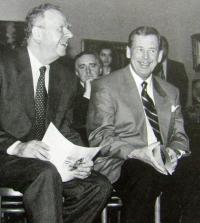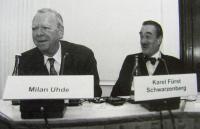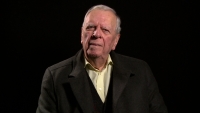I tried to confront everything with my conscience
Milan Uhde was born on 28 July 1936 in Brno. His father worked in the civil service, his mother ran a very successful private law firm. She was disbarred in 1938 because of her Jewish origin. During the war, she managed to obtain a false non-Jewish identity, thanks to which she avoided deportation. However, her parents died in 1942 in a concentration camp in Riga. After the war, Milan Uhde graduated from grammar school and later from the Faculty of Arts of today‘s Masaryk University in Brno. Until 1956 he was a supporter of communism. He interpreted the horrors he perceived around him as the mistakes of individuals. It was only Khrushchev‘s criticism of Stalinism and the events in Hungary that opened his eyes to the fact that he was „living in a gangster movie“. In the 1960s he worked in the editorial office of the literary monthly Host do domu („A Guest in the House“), published, wrote radio and television plays. He came into the public awareness with his sharply satirical play Král Vávra. During the period of normalisation he was labelled an enemy person and in 1972 he became a completely banned author. He published under pseudonyms (e.g. the play Balada pro banditu), in samizdat and abroad. In 1976 he signed the Charter 77. He was monitored by the secret police and underwent several interrogations. Before the Velvet Revolution he was at the birth of the Atlantis publishing house, which he briefly managed after November 1989. After that, he worked in politics for several years, in 1990-92 as Minister of Culture, then as a deputy and until 1996 as the first chairman of the Chamber of Deputies of the Czech Republic. His political career was linked to ODS (the Civic Democratic Party), but in 1997 he left it after criticism of Václav Klaus and subsequently withdrew from politics. He is still an active author. He lives in Brno.

